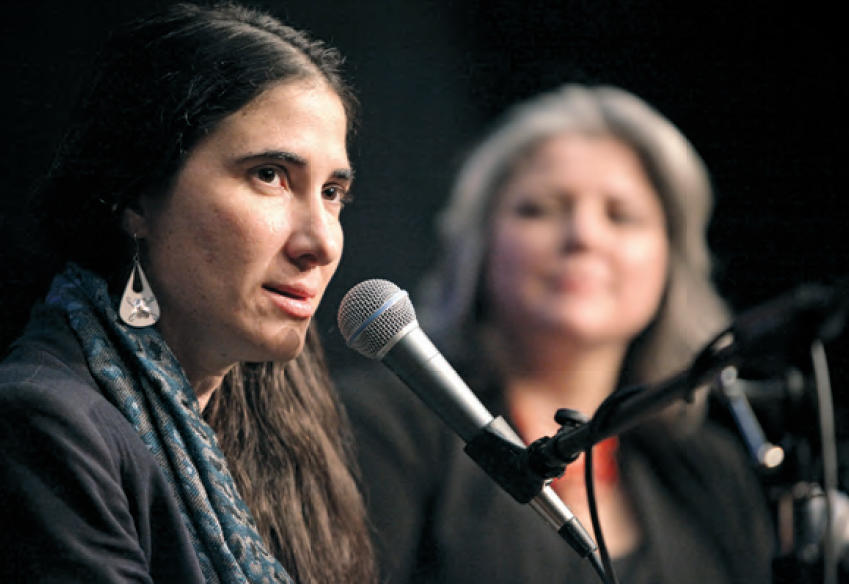Memory sticks. Recordable CDs. Portable hard drives.
To Cubans, these are tools of resistance. In a country where the news media are controlled by the government and access to the Internet is restricted, swapping digital-storage devices stocked with independent journalism, film, and political writing is one of the few safe ways to share information under the noses of government censors.
“Someday, when they make a monument to democracy in Cuba, they will build a statue commemorating the thumb drive,” said Yoani Sánchez, a Havana journalist whose blog, Generación Y, is celebrated for its critical descriptions of day-to-day life in Cuba.
Sánchez, thirty-seven, was speaking at Columbia’s journalism school on March 14 as part of a three-month tour of the Americas and Europe that she undertook after being permitted to leave her country for the first time in more than a decade. She arrived in Morningside Heights four years after she won the prestigious Maria Moors Cabot Prize for reporting on Latin America. The prize is administered by the journalism school, and since the Cuban government would not let Sánchez travel, she received it in absentia.
Her long-delayed visit to Columbia included a conversation with students in which she discussed the role of social media in democracy movements; the extravagant lengths to which she has gone to access the Internet; and how Cuban exiles can push for change on the island.
The best way to help? “If you travel to Cuba, at the end of your trip, look inside your suitcase for any digital media you might have, and give it to someone.”



